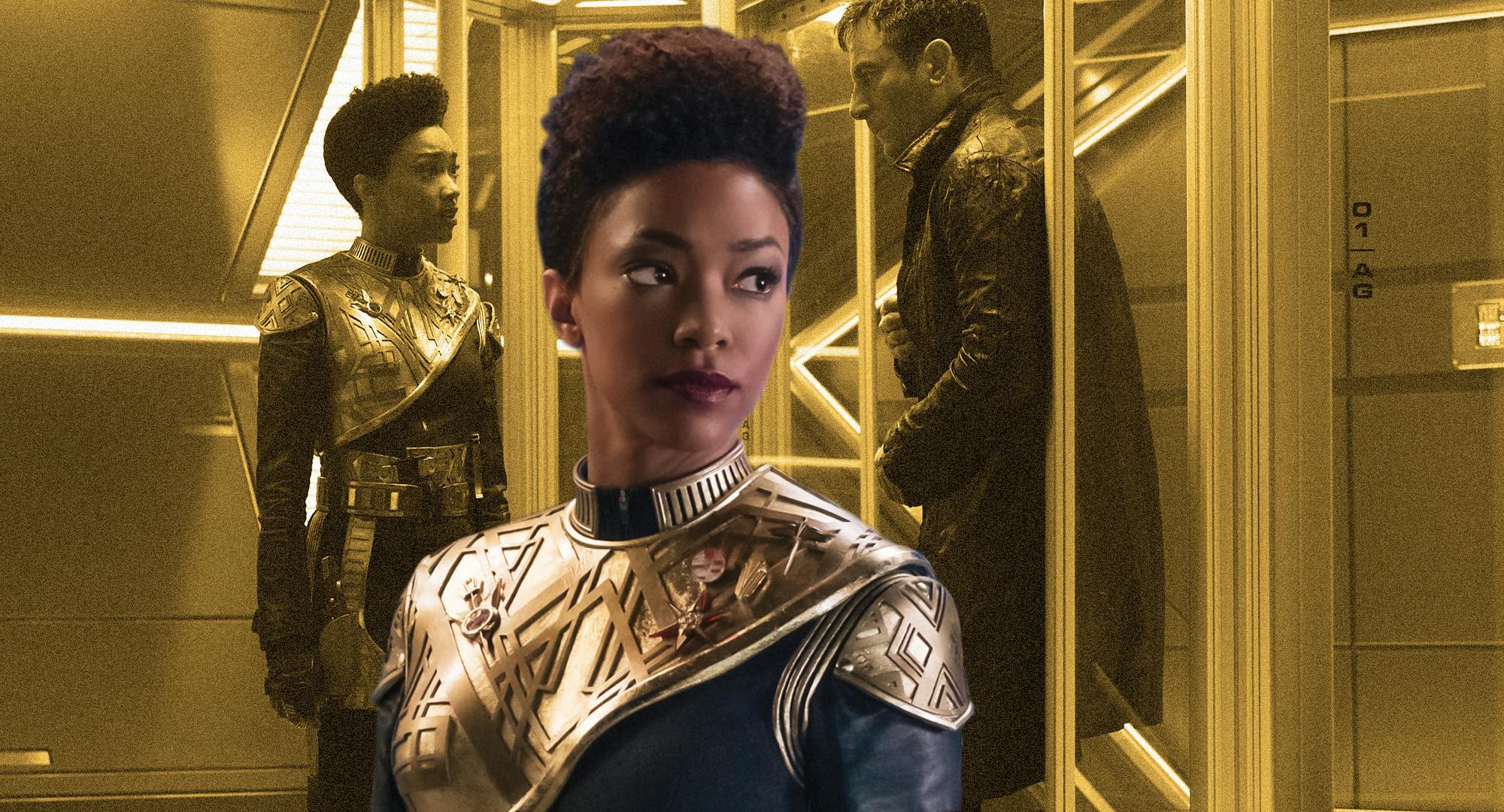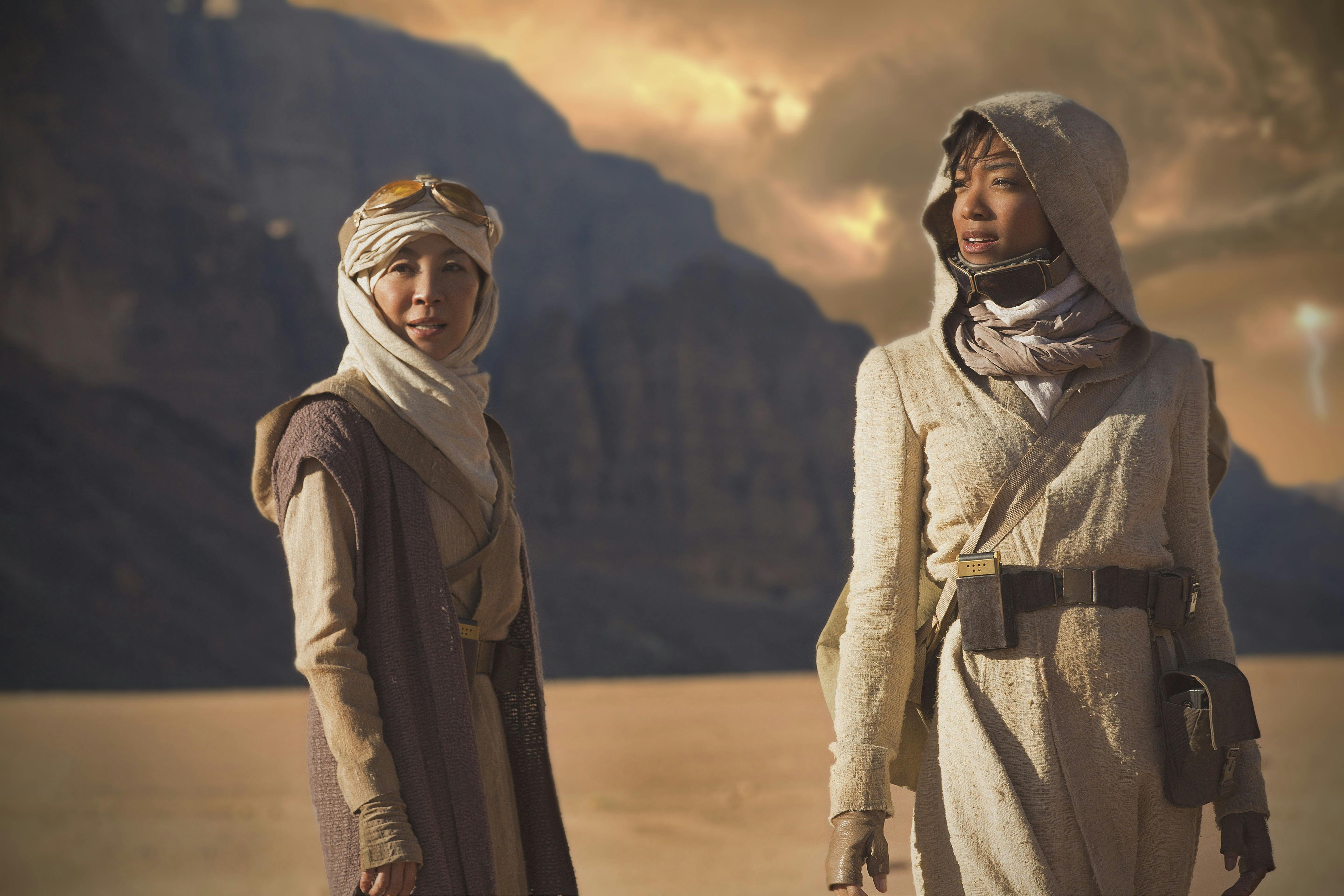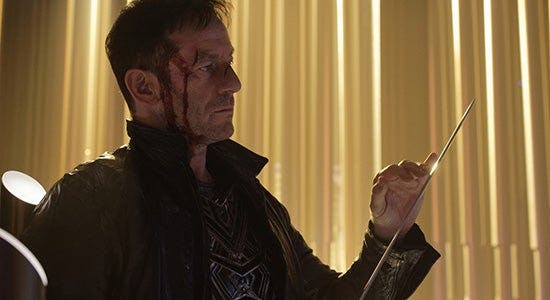Published Apr 4, 2020
Mirrored Sympathies
How Discovery's first season encouraged us to extend the bounds of our sympathy.

StarTrek.com
Philosopher Henri Bergson writes, “Instinct is sympathy. If this sympathy could extend its object and also reflect upon itself, it would give us the key to vital operations.” The sympathy that Bergson has in mind is separate from how he describes intelligence. He describes intelligence as science and work. It is the analysis that results from extending one’s masterful, but dominating gaze over an object. Instinct, what he also calls intuition, leads to “the very inwardness of life.” Intuition extends itself by seeing the living consciousness of a material thing. It moves beyond dissection and analysis.
This moving beyond and extending the boundaries of sympathetic relation is in the life of all living things, including animals. Picking up on this Bergsonian insight, contemporary theorist Brian Massumi poses this question: “If this sympathy could extend its object and also reflect upon itself, providing the key to vital operations, what would prevent us from finding… something that could only be described as a primary consciousness?”
I think a case can be made that the first season of Star Trek: Discovery was a story about an extension of sympathy that drives Michael Burnham and the audience to contemplate new types of consciousness. The season opens with a loyal and logical first officer confronted with an external threat to her ship and her captain. Burnham recommends a course of action to Captain Georgiou when the Klingons are first encountered. She learned from the Vulcans that she must fire first. No attempt to dialogue is possible. An analysis was conducted and a logical permutation was calculated. Survival necessitates initiating violence and immediate action. This results in the fateful events which determine the course of her life. Her mutiny, trial, and ultimately her service aboard Discovery were the result of her inability to recognize the consciousness of another, in this case the Klingons.

startrek.com
This is what draws Captain Lorca to her. He admires her action and willingness to not get bogged down in sympathy. Lorca reflects his own values from the mirror universe in both his calculating nature and his disregard for sympathy. This is especially seen in the narrative arc surrounding Ripper, the space Tardigrade who navigates the mycelial network. Even before Burnham connects with her fellow crewmates, it is with this animal that Burnham first feels real affection. Lorca sees a weapon and an opportunity with the tardigrade. He looks at the animal and sees an opportunity for leverage that can be gained through experimentation. As exhibited in his laboratory, living beings that remind him of animals are mere objects of study and available for dissection and use for whatever means he sees for his benefit. Ripper elicits an affective, emotive response in Burnham as she witnesses the suffering, the responsiveness, and the life of the tardigrade. Despite the violent potential, enacted in self-defense, which initially exposed Burnham to Ripper, she sees an expanding relational potential with the tardigrade that draws her to contemplate anew her own existence and her approach to others.
Similarly, Burnham is confronted again with the delegitimizing of life by Emperor Philippa Georgiou. In the Mirror Universe anything not deemed worthy as an equal is pursued, enslaved, and even (literally) consumed. In the Mirror Universe, the fate of cultures, planets, environments, and species are but commodities for exploitation. The Terran Empire is exploiting the resources of the mycelial network to the point of absolute depletion and destruction. That this will result in their undoing does not seem to matter. Burnham is confronted with the allegedly logical approach she initially took to the Klingons taken to its own furthest conclusion. If such an approach to other living things is taken as a guide for life and society, the illogic of it becomes clear. It leads to the destruction of the very thing that society needs to assert itself.

StarTrek.com
Burnham’s journey reflects the extension of sympathy proposed by Bergson. It was her exposure to a life that was initially deemed violent and useful as a weapon in the character of Ripper that corrected her approach and opened her instinct for sympathy. It expanded her relational horizons and opened her to new possibilities of consciousness. This openness to primary consciousness found in material realities led her to question the ruthlessness and commodification of life in the Mirror Universe. It also compelled her to stand up to the military strategies of Starfleet at the end of the season and remind the Federation of its own principles and the possibilities of expanding empathy when these principles are maintained. In Star Trek: Discovery there is a parallel between how a society treats its animals and its citizens. There is an analogy between our approach to the nonhuman world and how we approach other cultures.
In this, the audience is asked to contemplate various possibilities for life. Does our life and society reflect Burnham’s journey or that of the Mirror Universe? Are we extending the reach of our sympathy?
Timothy Harvie (he/him) is an Associate Professor of philosophy and ethics at St. Mary's University in Calgary, Canada. His interests lie primarily in philosophical theology, political philosophy, environmental and animal philosophies, and ideas of the role of hope in society. He is a lifelong Star Trek fan.
Star Trek: Discovery streams exclusively on CBS All Access in the United States and is distributed concurrently by CBS Studios International on Netflix in 188 countries and in Canada on Bell Media’s CTV Sci-Fi Channel and OTT service Crave.

